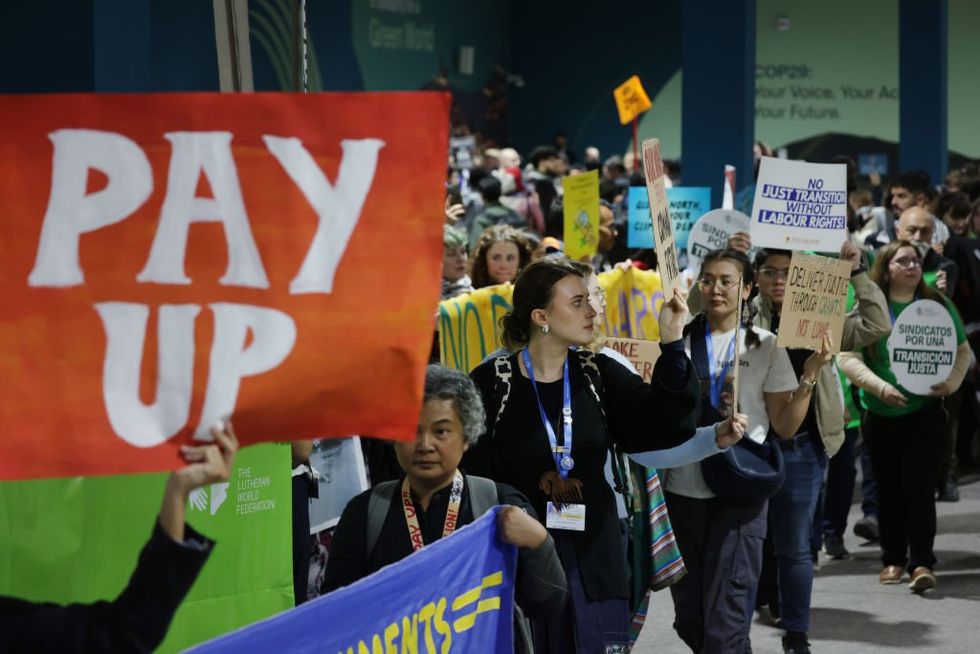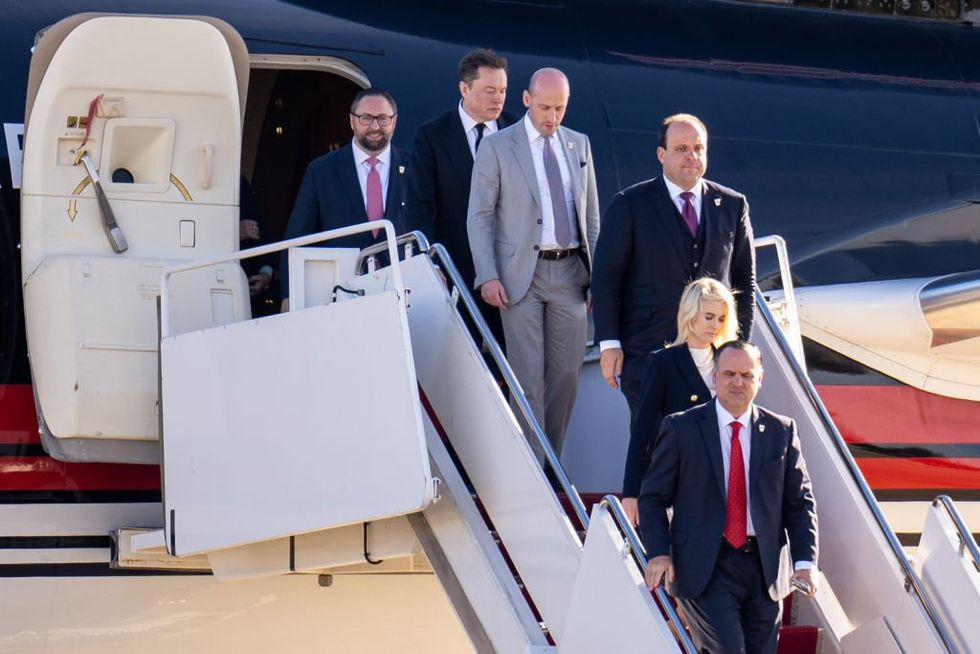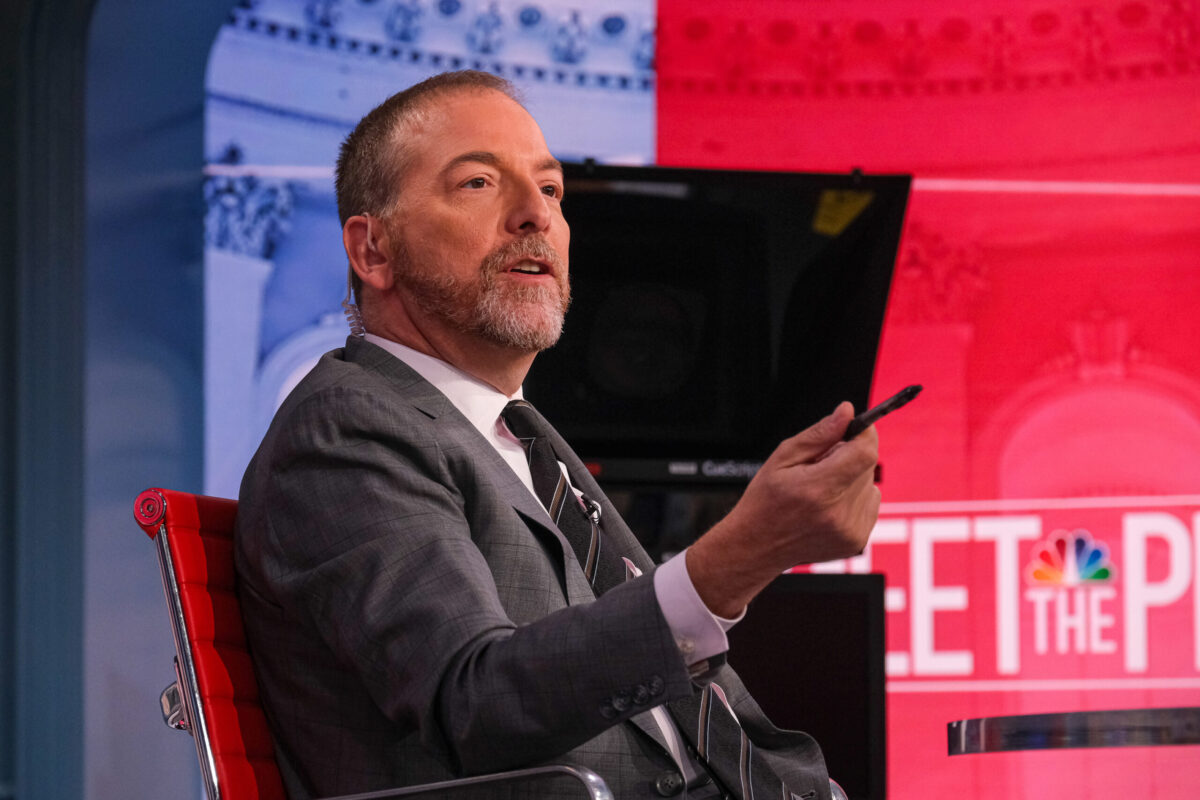Green policies fuel riches for elites, pain for the rest
Azerbaijan’s government has some troubling practices, and the world should pay attention. Whether you believe in a climate emergency or not — and especially if you do — the shenanigans at the ongoing COP29 climate conference in this authoritarian Caucasus nation should raise alarms. Recent U.N. climate conferences, including COP28 in the United Arab Emirates and COP29 in Azerbaijan, reveal a troubling trend: Global environmental activists seem unbothered by the severe wealth inequality their policies exacerbate. These activists actively collaborate with state oil tycoons to secure their own gains, often at the expense of ordinary people. Climate alarmism remains a luxury belief held predominantly by wealthy elites, not ordinary people. The authoritarian regimes of the UAE and Azerbaijan epitomize this disparity. In Azerbaijan, the average GDP per person is about 18 times higher than the median income. In contrast, this ratio in Western nations typically ranges between four and five. These glaring inequalities underscore the cozy relationship between government elites and global environmental activists. Climate activists and state oil moguls actively disregard free markets and consumer preferences. Environmentalists routinely condemn consumer choices they deem “wasteful” or “unsustainable” and push policies that force compliance rather than encourage voluntary participation. Likewise, state oil companies reject competition at home and collude internationally to manipulate oil production when it increases their profits. Both groups enrich themselves at others’ expense. Taxpayers, not attendees, fund COP29. National delegations draw from public budgets, while global NGOs like the United Nations and World Bank use funds from member nations to support the conference. Oil barons in the UAE and Azerbaijan exploit natural resources for personal gain. Officials use state power to secure private wealth while denying citizens their rights. These oil-rich nations exemplify extractive institutions, where elites monopolize resources and leave the public to bear the cost. The environmental agenda seeks to do the same — transferring hundreds of billions of dollars from taxpayers to narrowly owned wind, solar, and other green projects. Rather than serving customers and receiving voluntary payment, both environmentalists and government oil barons would rather extract resources from people by force. COP29 participants explicitly demand that wealthy nations’ taxpayers “pay up” through climate reparations. These funds will likely enrich corrupt officials instead of benefiting the poor and vulnerable who are supposed to receive them. Decades of foreign aid being diverted into government officials’ pockets provide ample reason to reject this policy. The irony of hosting the U.N. climate change conference in oil-producing countries runs deep. Participants create massive carbon footprints through air travel, food and goods consumption, and electricity use. Their activities rely on the very oil production they criticize, in countries they now place at the forefront of climate planning. Climate alarmism remains a luxury belief held predominantly by wealthy elites, not ordinary people. These elites can more easily handle the higher costs created by environmental restrictions, unlike the poor and middle class. Moreover, elites are more likely to profit from net-zero policies, which subsidize solar panels, electric vehicles, and billion-dollar carbon offset and green energy schemes. It’s time to end the self-serving theatrics of U.N. climate conferences pretending to save the planet. Expanding fossil fuel exploration and development in the United States offers a far better path. Cheap energy means greater freedom and prosperity for all.


Azerbaijan’s government has some troubling practices, and the world should pay attention. Whether you believe in a climate emergency or not — and especially if you do — the shenanigans at the ongoing COP29 climate conference in this authoritarian Caucasus nation should raise alarms.
Recent U.N. climate conferences, including COP28 in the United Arab Emirates and COP29 in Azerbaijan, reveal a troubling trend: Global environmental activists seem unbothered by the severe wealth inequality their policies exacerbate. These activists actively collaborate with state oil tycoons to secure their own gains, often at the expense of ordinary people.
Climate alarmism remains a luxury belief held predominantly by wealthy elites, not ordinary people.
The authoritarian regimes of the UAE and Azerbaijan epitomize this disparity. In Azerbaijan, the average GDP per person is about 18 times higher than the median income. In contrast, this ratio in Western nations typically ranges between four and five. These glaring inequalities underscore the cozy relationship between government elites and global environmental activists.
Climate activists and state oil moguls actively disregard free markets and consumer preferences. Environmentalists routinely condemn consumer choices they deem “wasteful” or “unsustainable” and push policies that force compliance rather than encourage voluntary participation. Likewise, state oil companies reject competition at home and collude internationally to manipulate oil production when it increases their profits.
Both groups enrich themselves at others’ expense. Taxpayers, not attendees, fund COP29. National delegations draw from public budgets, while global NGOs like the United Nations and World Bank use funds from member nations to support the conference.
Oil barons in the UAE and Azerbaijan exploit natural resources for personal gain. Officials use state power to secure private wealth while denying citizens their rights. These oil-rich nations exemplify extractive institutions, where elites monopolize resources and leave the public to bear the cost.
The environmental agenda seeks to do the same — transferring hundreds of billions of dollars from taxpayers to narrowly owned wind, solar, and other green projects. Rather than serving customers and receiving voluntary payment, both environmentalists and government oil barons would rather extract resources from people by force.
COP29 participants explicitly demand that wealthy nations’ taxpayers “pay up” through climate reparations. These funds will likely enrich corrupt officials instead of benefiting the poor and vulnerable who are supposed to receive them. Decades of foreign aid being diverted into government officials’ pockets provide ample reason to reject this policy.
The irony of hosting the U.N. climate change conference in oil-producing countries runs deep. Participants create massive carbon footprints through air travel, food and goods consumption, and electricity use. Their activities rely on the very oil production they criticize, in countries they now place at the forefront of climate planning.
Climate alarmism remains a luxury belief held predominantly by wealthy elites, not ordinary people. These elites can more easily handle the higher costs created by environmental restrictions, unlike the poor and middle class. Moreover, elites are more likely to profit from net-zero policies, which subsidize solar panels, electric vehicles, and billion-dollar carbon offset and green energy schemes.
It’s time to end the self-serving theatrics of U.N. climate conferences pretending to save the planet. Expanding fossil fuel exploration and development in the United States offers a far better path. Cheap energy means greater freedom and prosperity for all.
Originally Published at Daily Wire, World Net Daily, or The Blaze
What's Your Reaction?

































































































